
Pope Francis, born Jorge Mario Bergolio in Buenos Aires, has died, the Vatican announced Monday. He was 88. (Image via Flickr published under CC License 2.0)
With the passing of Pope Francis, the world loses one of the most charismatic pontiffs of the last century, a reformer who made himself available to the faithful, traveled to 66 countries, and vigorously engaged with the crises of his time such as war, mass migration, and man-made climate change.
Francis was the first pope from Latin America to lead the world’s 1.3 billion Roman Catholics. Born Jorge Mario Bergolio in Buenos Aires, Francis considered his papacy a continuation of the milestone meetings of the 1960s called Vatican II, called by Pope John XXIII to modernize the church and “let in the fresh air.” Vatican II shelved Latin for worship in local languages, declared that all people – not just Catholics – might be saved, and for the first time since the French Revolution promoted democracy and the separation of church and state. After his election in 2013, Francis took up John’s aspiration that the Roman Catholic Church become the church of the poor, eschewing its traditional identification with the rich and powerful.
He advanced ecumenism with outreach to Islam and other faiths, and opened doors for the divorced. He reached out to gays beginning with his famous answer to a reporter’s question about gay priests, “If a person is gay and seeks God and has good will, who am I to judge?” When the conservative U.S. bishops’ conference tried to forbid Holy Communion to newly elected President Joe Biden in 2021 for supporting abortion law, Francis’s Vatican stopped them. “I have never denied the Eucharist to anyone,” the pope said. Abortion, Francis maintained, was no more “pre-eminent,” as the U.S. bishops termed it, than other pro-life issues such as capital punishment or care for the poor.
Francis had other differences with a majority of some 240 U.S. bishops, who have moved to the right in recent decades. They virtually ignored his landmark 2015 encyclical “Laudato Si’” which cited climate change and unfettered capitalism as dangers which affected the most vulnerable, a document that helped bring forth the Paris Accords. When COVID-19 hit, U.S. bishops’ obsession with abortion caused many to denounce, or fail to promote, vaccines, which used cells derived from abortions during testing in the 1960s; the Vatican declared the shots morally acceptable, especially in the life-and-death situation of the pandemic, and Francis urged them for the common good, an act of brotherly love to protect others. When crowds erupted in 2020 Black Lives Matter protests against the murder of a black man, George Floyd, most bishops were silent. Los Angeles Archbishop José Gomez, prelate of the largest diocese in the country and president of the U.S. bishops’ conference, characterized activist solidarity movements as an expression of “secularization…which means de-Christianization,” a species of “pseudo-religions” that originated in the “Marxist cultural vision.” In contrast, Francis endorsed action in the face of injustice by calling the protesters “the Collective Samaritan, who is no fool.”
Bergolio was born of Italian immigrant parents, raised in a close-knit extended family, and studied chemistry before entering the priesthood, working at a laboratory in Buenos Aires during an era when a junta government disappeared and killed suspected leftists. When his former supervisor at the lab, Dr. Esther Careaga, with whom he had remained good friends, called the newly ordained Fr. Bergolio to give the last rites to a relative, he arrived to find the call was a ruse, and Cariaga begged him to take away the family’s books on Marxism and communism — he delivered them to a seminary library. (Becoming an activist among mothers whose children had disappeared, Careaga was arrested by authorities and killed by dropping her from a helicopter in 1977.) As liberation theology spread through Latin America — the spiritual movement centered on an “option for the poor” and commanded a following of millions — Bergolio championed a version called “theology of the people” which did not use Marxist economic analysis. In 2018 he canonized El Salvador Archbishop Oscar Romero, assassinated by a right-wing death squad as he said Mass in 1980; other popes and conservative bishops had stalled the recognition for 38 years.
As the first Jesuit and first non-European pope since the eighth century, from a mostly poor continent, Francis brought a new perspective to the gilded halls of the Vatican. Almost immediately he booked a trip to Lampedusa, the Italian island facing Africa where thousands of refugees were landing, to say Mass and express solidarity. He continued to stand for welcoming the stranger with dignity as a tenet of Catholic social teaching as anger grew in Europe at increasing immigration and a new administration in the United States pledged mass deportation. In February U.S. Vice-President J.D. Vance, a Catholic since 2019, justified President Trump’s crackdown on migrants with an interpretation of medieval theology positing the ordo amoris, the order of love, as care that begins with family, then reaches other circles like community and only at the furthest edge embraces the stranger. Francis came back with a corrective theology lesson of his own. “The true ordo amoris that must be promoted is that which we discover … by meditating on the love that builds a fraternity open to all, without exception,” he said. U.S. bishops have strongly defended immigrants. The Vatican said that Vance met with officials on Saturday for “an exchange of opinions” and briefly on Sunday with Francis for “an opportunity to exchange Easter greetings.”
In the hours before he died, on Easter Sunday Francis cheered thousands gathered in a flower-filled St. Peter’s Square with an appearance from a balcony from which he blessed the crowd. His Easter message, read by an aide, addressed conflicts in various parts of the world, expressing solidarity with those suffering and appealing “to all those in positions of political responsibility” to use resources as “weapons of peace” that help the needy and promote development “instead of sowing seeds of death.”
Francis shook up the Curia, the entrenched Vatican bureaucracy meant to advise the pope, reforming it to combat clericalism. Department heads no longer must be cardinals or even priests, but may be lay people or ordinary religious, including women. He appointed women to important positions; but he did not go far enough to honor the desires of certain Catholic women to become priests, declaring ordination must be reserved for men. Francis faltered in failing to confront the seemingly intractable clergy sex abuse crisis at the beginning of his pontificate, disbelieving victims in Chile and defending a bishop accused of witnessing and ignoring abuse. In time and after investigations, Francis admitted to “grave errors in judgment,” defrocked bishops and accepted the resignations of others, and apologized to victims, inviting some to talk personally to him. In 2019 he called global bishops to a four-day meeting in Rome, insisting that clergy sex abuse and cover-ups threaten the entire Church and promised to confront abusers with “the wrath of God.” Nevertheless, like his predecessors the German Pope Benedict XVI and the Polish John Paul II (1978-2005), failure to fully engage the crisis may be a stain on his legacy.
As president of the Conference of the Latin American Episcopal Conference (CELAM), Bergolio redacted the memorable final document of CELAM’s meetings that took place in Aparecida, Brazil, in 2007, a touchstone event of modern Latin American church history imbued with the spirit of Vatican II. He emphasized the “peripheries” where troubled souls live as the object of care and evangelization. “I prefer a church which is bruised, hurting and dirty because it has been out on the streets, rather than a church which is unhealthy from being confined and from clinging to its own security,” he said on the eve of the conclave that elected him pope. He asked prelates to wear their chasubles “humbly,” as he did while living simply, disdaining traditional papal sumptuary customs of ermine and fine brocade, typically wearing a plain white cassock, declining to live in the lavishly appointed papal apartments, choosing instead a room in the guesthouse for Vatican visitors, eating in the communal dining room.
In the practice of austerity, Francis personified a constant in modern Latin American theological reflection. He chose his papal name only at the last minute, for the saint of Assisi who ministered to the poor, when it became clear the 2013 conclave was throwing him the most votes, and his good friend Cardinal Cláudio Hummes of Brazil leaned over and whispered, “Jorge, don’t forget the poor.”
The Vatican announced Francis’ death Monday. He was 88. An upcoming conclave will choose a new pope. Reportedly, Francis occasionally said he thought of an aspirational successor who took the name John XXIV, in honor of the pope who called for Vatican II and “let in the fresh air,” and who would continue its spirit of engagement with the world.
Journalist and author Mary Jo McConahay’s latest book is Playing God, American Catholic Bishops and the Far Right (Melville House).

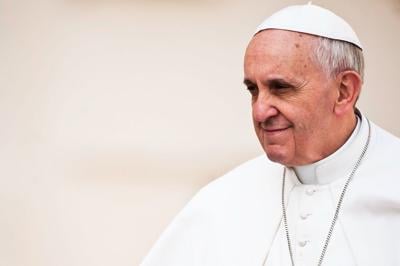
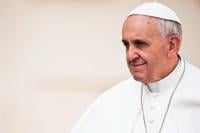

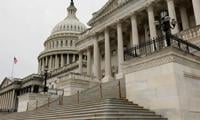

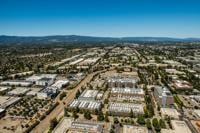

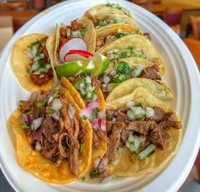

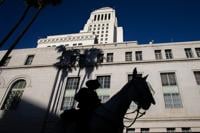
(0) comments
Welcome to the discussion.
Log In
Keep it Clean. Please avoid obscene, vulgar, lewd, racist or sexually-oriented language.
PLEASE TURN OFF YOUR CAPS LOCK.
Don't Threaten. Threats of harming another person will not be tolerated.
Be Truthful. Don't knowingly lie about anyone or anything.
Be Nice. No racism, sexism or any sort of -ism that is degrading to another person.
Be Proactive. Use the 'Report' link on each comment to let us know of abusive posts.
Share with Us. We'd love to hear eyewitness accounts, the history behind an article.